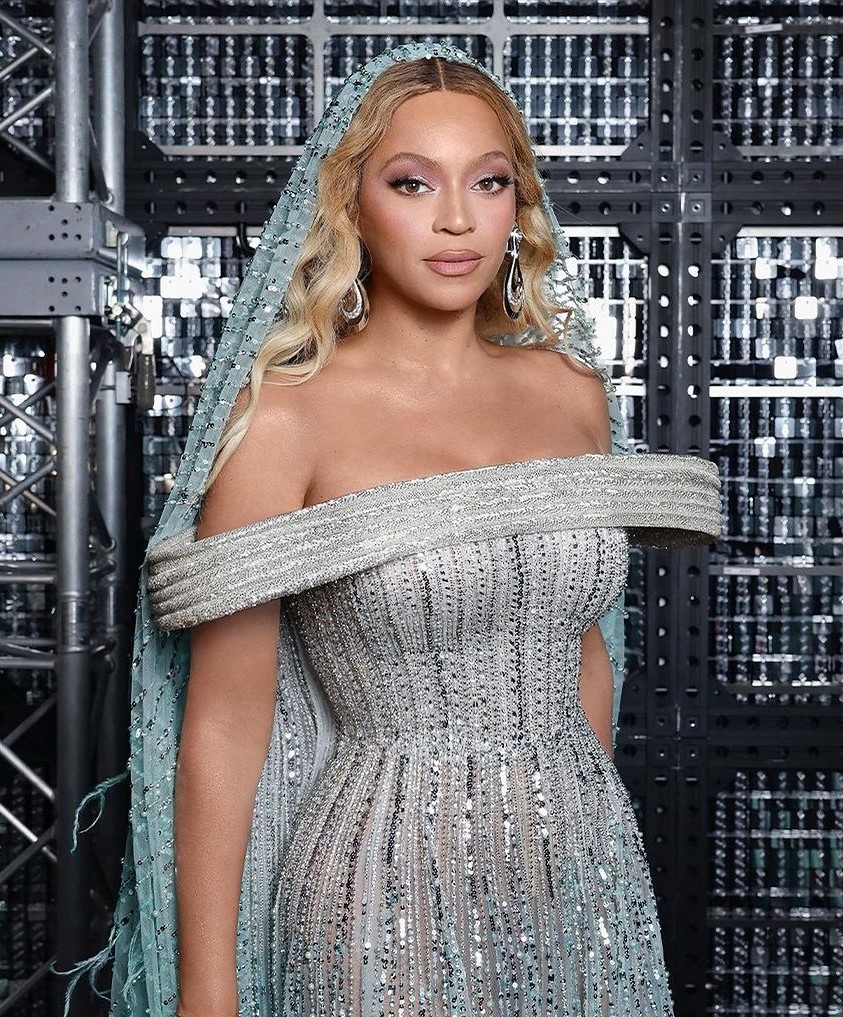Beyoncé, an American singer and songwriter, was born to an African American father and Louisiana Creole mother on September 4, 1981.
Rising to fame with Destiny’s Child, one of the best-selling girl groups, Queen Bey debuted solo with “Dangerously in Love” (2003).
Achieving US number-one albums with “B’Day” (2006), “I Am… Sasha Fierce” (2008), and “4” (2011), Beyoncé later released critically acclaimed visual albums “Beyoncé” (2013) and “Lemonade” (2016).

In 2022, her queer-inspired dance album “Renaissance” made her the first female artist with seven consecutive number-one studio albums in the US. Her Billboard Hot 100 hits include “Crazy in Love,” “Single Ladies,” and “Halo.”
Beyoncé, a cultural icon, has acted in films and starred in the historic live album “Homecoming” (2019).
With 200 million records sold globally, she holds 32 Grammy Awards and numerous accolades, making her one of the best-selling and most-awarded music artists in history.
You Can Also Read: Bill Vinovich Ethnicity: NFL Referee Origin, Race & Parents Background>>
Beyoncé Ethnicity: Is She Really A Descended From A Slaveowner?
In a revealing interview with Vogue, global icon Beyoncé Knowles-Carter shared a surprising discovery about her ancestry that has sparked significant interest and discussions.
The singer disclosed that through recent research, she learned she is descended from a slaveowner who fell in love with and married a slave.
This revelation adds layers to Beyoncé’s already multifaceted identity and has prompted reflections on the complexity of racial dynamics in American history.
Beyoncé’s ancestors were rooted in Louisiana, a state with a deep history of slavery. Records indicate that her great-great-great-grandmother, Rosalie Jean Louis, born in 1800, was a black slave who married Joseph Lacey, a wealthy white American merchant.

The acknowledgment of this familial connection with a slaveowner has raised questions about the singer’s ethnic background.
Although historical records don’t confirm Lacey’s slave ownership, Beyoncé is acknowledged as Creole, inheriting the cultural designation from her grandparents.
The exploration of Beyoncé’s lineage delves further into the intricate web of relationships shaped by historical circumstances.
Her great-great-grandmother, Celestine Josephine Lacey, known as “Tine,” was the life-long mistress of sugar plantation owner Eloi Rene Rosemond Broussard, further intertwining her family’s story with the harsh realities of slavery in the American South.
The revelations highlight the intricate tapestry of identities within the singer’s heritage, bringing to light the challenges and contradictions that shaped her family history.
Beyoncé Race And Origin
Beyond the revelation of her ancestry, Beyoncé’s identity is a mosaic reflecting diverse racial and cultural influences.
Raised Methodist, she attended St. John’s United Methodist Church, showcasing her early connection to faith and community.
The singer’s mother, of distant Irish, Jewish, Spanish, Chinese, and Indonesian ancestry, adds layers of cultural richness to her background.
Her Vogue interview touches on the broader societal context of race, with the singer discussing the challenges associated with generational curses in her family.

The acknowledgment of a lineage marked by broken relationships, abuse of power, and mistrust speaks to the broader narrative of African American experiences.
The global superstar’s dedication to breaking generational curses aligns with her broader commitment to activism and social change.
In her Coachella performance and subsequent album releases, Beyoncé has utilized her platform to celebrate African American culture, challenge historical narratives, and advocate for progress.
Her collaboration with photographer Tyler Mitchell, the first African American to shoot a Vogue cover, exemplifies her efforts to break down cultural and societal barriers.
In navigating her identity, Beyoncé’s story becomes a powerful reflection of the complexities faced by many individuals in the 21st century.
Beyoncé continues to shape her narrative, offering a profound insight into the intricate relationship between race, identity, and societal progress.
Similar Article: Joel Osteen Ethnicity & Parents: Family, Wife & Kids>>

